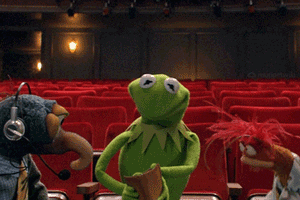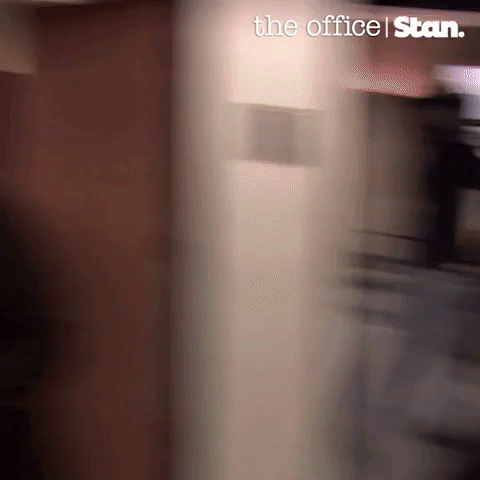So you want to be a music supervisor and you’re looking for some advice! I’m happy to provide information based on my experience. However, just because you love music, or make great playlists, or are knowledgeable about music doesn’t mean you’d make a good music supervisor; It just doesn’t. Even if you’re a DJ, an encyclopedia of genres, or an experienced musician, it doesn’t matter. This job has more to do with managing people, expectations and negotiating than it does about being creative. Pitching music is really only about 25-35% of the job.
A couple of years ago, I helped launch an educational sync event for the Canadian Guild of Music Supervisors called Sound + Vision. We produced panels about how to pitch to music supervisors, how songs were creatively chosen for projects, and hosted some special guest speakers. One of my favourite panels was, “So You Want to Be a Music Supervisor?!” It was a quick glimpse into what the day-to-day is like for music supervisors, across television, film and advertisements. We didn’t get into a lot of the nitty gritty, because it wasn’t really an appropriate place to bring up some of the negative aspects of the job. However, now that I am focusing on advocating not only for myself, but for other music supervisors, I want to break it down as bluntly as possible. No glitz, no glamour, just the honest truth.
I don’t want to rip apart this occupation or anyone in the industry now that I’ve moved on from it. I only wish that someone had taken the time to level with me about some of these things when I first started, so I could have better prepared on what to expect later on in my career.
The majority of the job is dealing with a lot of personalities, shifting schedules, emergencies and doing all of it within a short window of time. You also have to be prepared to do it on multiple projects. I’ve brought this up in a previous newsletter, but you can’t sustain only working on one project at a time in this field. Music Supervisors are not paid enough or unionized, so you have to say yes to every project that comes in. Projects may be over budget and won’t have the financial means to pay for your services, let alone the music they want to license. And yet, music is one of the most important aspects to a project but is rarely budgeted properly. Smaller budgeted projects tend to be more demanding as they need extra hand holding while expecting the same quality of work, for less money. Educating the client on how the process works can be very time consuming.
Due to poor planning and/or lack of respect on the production side, the music supervision team often ends up with reduced budgets. Filmmakers are unfortunately forced to make more for less these days, which affects how much they can budget for music even if they prioritize it and recognize the value in music. If they had healthier budgets, you would have healthier budgets. Generally, having to manage clients’ expectations can be extremely difficult. You end up being the bad guy and/or scapegoat in many instances, which is never a fun feeling.
Another issue that often occurs is when music supervisors are not hired early enough. Playing catch up with the entirety of a project leaves very little time to prepare and do the job at a level in which you’ll be satisfied.
Once you are hired on a project, you’re reading scripts, making music notes, putting together songs, playlists, and pitching those ideas to the client. You’re also working on clearing songs in advance if need be. If someone is singing or performing a song on set, you have to get it cleared with the publishers in advance, before they go to camera. That shoot date could change on the fly too, so you have to keep up with the daily production schedules and make sure that scene didn’t move up a day, a week or more. Sometimes pre-records are necessary, so singing live on set isn’t an option, which means you have to book a studio, musicians and make sure it’s all budgeted before the shoot date. If choreography is involved then clearing a song before the choreographer goes into rehearsals with the actors is required.
You’re also working with picture editors and sending song ideas for each scene. You have to be really good about knowing what songs or writers are difficult to clear, because believe it or not, there are artists that deny any and all uses that come in. They may be sensitive to the scene description too. Either that, or they have a minimum fee they will license for that may not fit your budget. Having good relationships with the label and publishing reps is therefore essential.
You have to get good at having affordable back up plans for when things don’t clear in time. Also, your director/showrunner has to like those ideas. It is very important to keep in mind that THEY are the ones making the creative decisions here, not you. You might end up sending ten different rounds of options because the client doesn’t know how to articulate what they want, or they simply don’t know what it is they want. They might have terrible taste in music and you could disagree with 99% of the choices they make, but you’re hired to get their creative vision across the finish line, regardless if you like the music or not. They might also have what’s called “temp love”, where they’re so in love with the original idea laid to picture, that they will hate any alts you pitch to them. This forces you to send frequent quote requests in advance in order to get a prepared dollar amount for the music budget.
You are in charge of the budget. You’re told how much you get per-episode or for the entire film, regardless if there are 25 songs in there, or 3. It’s your responsibility to keep it all under budget. Some songs will be more expensive than others and throw your budget off. There will be times where you will have to go back to an already cleared song to try and negotiate a lower fee. The labels and publishers may deny that request too.
There are also situations where your budget will get slashed because another department is over budget. The music department is always one of the first places they take money from. So all of that meticulous puzzle work you did to try and get the songs at the right fees, now has to be re-negotiated or be replaced all together.
You’re also practically a full-time detective, there will be instances where you have to hunt down ownership on a song that has little to no information available on the internet.. It’s a SKILL, let me tell ya.
You will have to do all the administrative work as well, such as clearance on the initial deal memos, and eventually the long-form licenses once the songs are chosen. You’ll have to collect the WAV files, deliver them to the mix, prepare screen credits and cue-sheet info. You are also working with the composer and giving score notes. You’re attending the spotting sessions with back-up songs prepared in case your client changes their mind. And you’re working with the music editor to create better, cleaner edits for the scene.
There will be projects that simply have too many cooks in the kitchen and you have to tell people what to do. You have to not only manage yourself, but you have to manage other people. Sometimes people will yell at you, and you have to stay calm and level headed about it. You have to be good at making decisions on the fly, high pressure ones at that.
Music supervisors are one of the very few people who are involved through the entire duration of a project; from pre-production, production and post-production. There are projects where you will continue to work even after the production has wrapped. Certain files need delivering or fixing, also people come to you about not getting paid, so you’re responsible for providing updates or looping in accounting. There are also ongoing opportunities and discussions being had with the marketing department.
This doesn’t include taking time to actually listen to music, collect submissions or keep your music library clean. Nor does it include the daily emails you have to respond to, the meetings you have to attend, or the phone calls you have to answer. And all of this is just for one project. Think about doing that for 5-10+ projects at a time. It’s a lot to keep track of. You have to be extremely organized and cannot allow mistakes to slip through the cracks. How you manage your time is crucial. You may have the same deadline on multiple projects and will have figure out how to magically deliver them all in time.
In order to sustain this workload and environment, it takes a certain kind of person. It takes a load of sacrifices.
The first thing to go is always your self-care. Forget about making healthy meals for yourself and eating at regular times. Forget about taking the time to read, go for walks, see friends, or sleep well. Your time is being demanded elsewhere. So, if you want to include self-care routines and still handle the workload, then you either have to hire help, assistance or coordinators to take some of the load off.
The reality is, if you’re wanting to enter this field, it’s not for the faint of heart. It’s extremely difficult to have a partner, a family or any outside socializing without it deeply affecting your work. If you do, then you have to have a partner who is going to support you with making work a high priority. Having children and doing this job, requires you to have some means of support too. Either from your partner or a caregiver, because it’s impossible to manage both without some assistance. Even if you don’t have children, having a healthy and functioning relationship while doing this job is very challenging. Not every partner is cool with you working 24/7. A lot of music supervisors out there are either single, have failed marriages, or have partners who are also immersed in the entertainment industry, simply because they can relate.
This job is also a lot to take on mentally and emotionally. The majority of active supervisors could probably benefit from therapy, or are already speaking to someone. There are a lot of egomaniacs, workaholics, people pleasers, and those who take on more stress than they can manage in this field. Finding the time, or coverage for a therapist is a whole other issue, because supervisors don’t receive health benefits or insurance.
This job is so intense, that I’ve seen some extremely sad shit happen to people I know and love. I’ve seen people turn to doing MDMA in the middle of the day, to forging documents, to having heart attacks, to straight up not responding to client emails for weeks on end. It mentally takes a toll on you, no matter who you are. It’s not sustainable.
It does, however, allow you to make friends in the trenches, simply because you have to. It’s a social environment and for every narcissistic person you run into, there’s also a cool, interesting, creative, engaging human, simply doing their best to put great art into the world. It’s also not for me or anyone else to judge if you’d like to dedicate your life to your work; it’s up for you to decide what you value and what kind of life you’d like to lead. But make no mistake: to make it in this line of work long term, you’ll either have to set intense boundaries or make peace with the fact that you’re earning less. Either that, or you need to diversify your income in some way, but still make supervision a top priority for as long as you continue to do it.
I don’t want to discourage anyone from following their dreams, if this is an avenue they truly want to go down. There are people out there who make it work and are successful at it, but I do feel it is important to lay all of the cards on the table and be honest about the work environment. Especially for people who may be on the fence about entering it.
If there is a way to perform at the top of this field and sustain work-life balance, I haven’t found it - and almost everyone I speak to about this, feels the same.
If you have any questions about this at all, please leave them in the comments, I will happily respond.
Take care of yourselves,









Interesting and horrifying read - somewhat mirrors my experience as a radio plugger in the 90s, especially on the self care front. And I feel like I got out relatively unscathed. Stay strong in there, the music makers appreciate your work!
Great read.